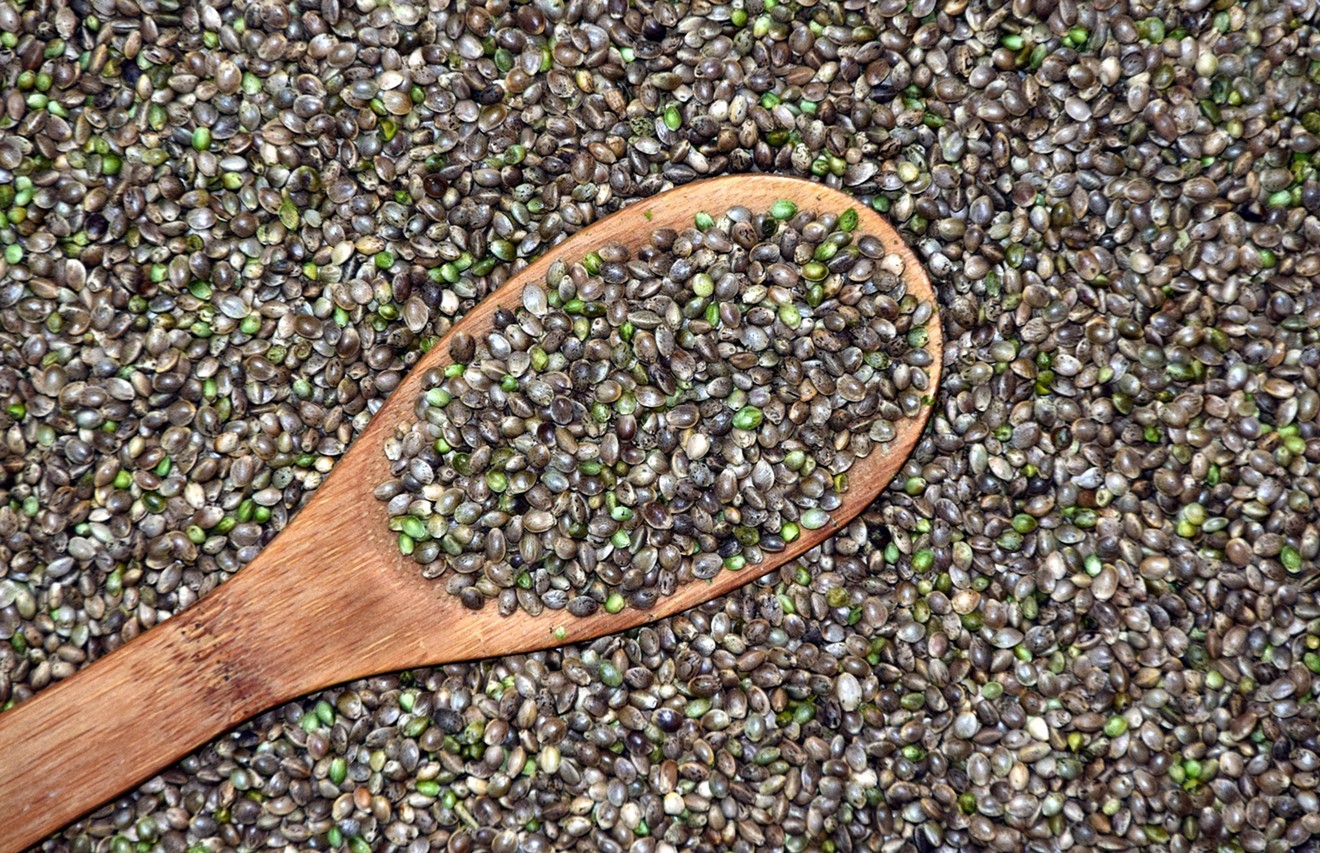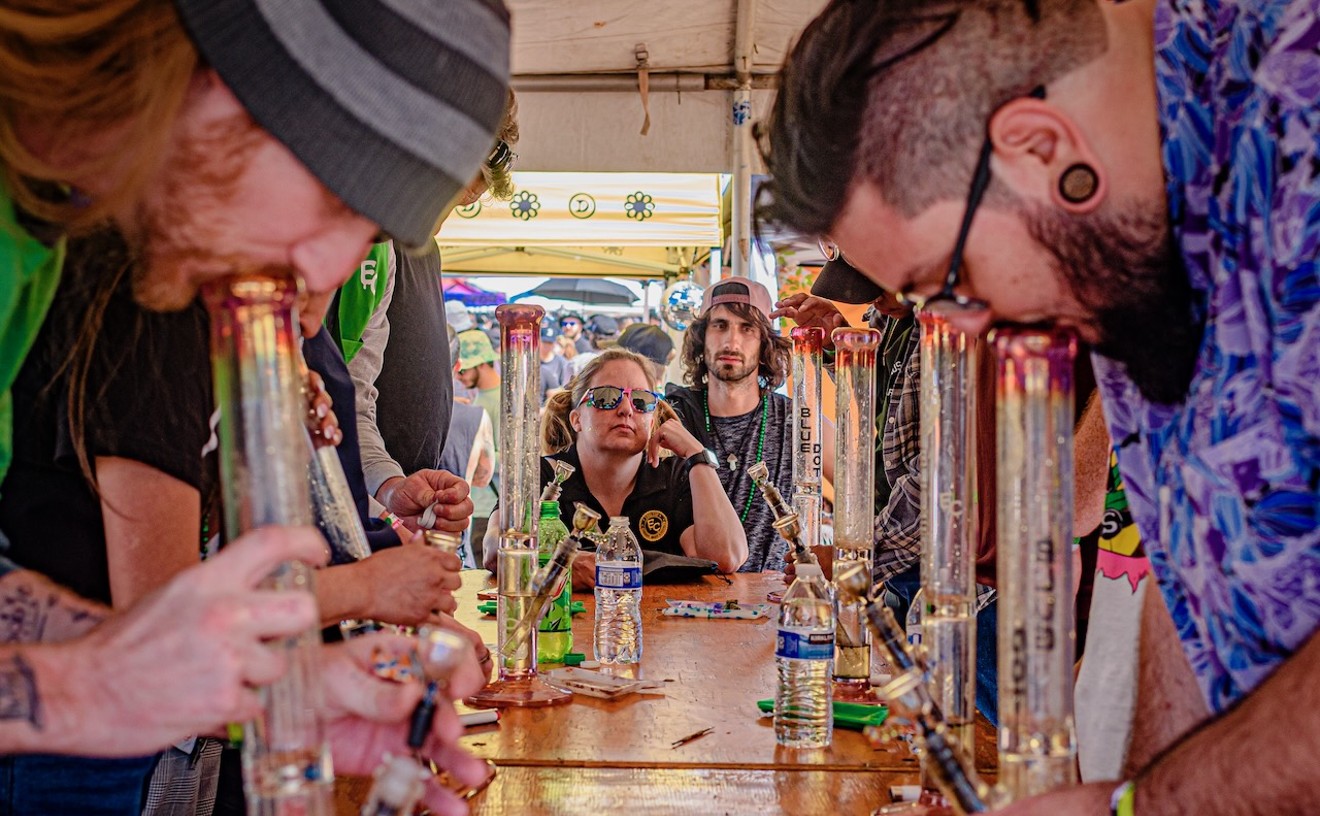Are you ready to grow some weed in 2021?
The Smart and Safe Arizona Act, a recreational cannabis proposition likely to be on November’s ballot, would legalize the home-grow of up to six plants per person, with a maximum total of 12 plants per household. Home cultivators could also give away an ounce of marijuana or up to six plants (including seeds) to another legal adult.
Tim Sultan, who worked with the Arizona Dispensaries Association to draft the proposition and now represents the Marijuana Industry Trade Association, confirmed that getting the seeds to start a grow may prove tricky.
“Anybody selling seeds in Arizona without a dispensary license is not authorized,” he said. “Patients, caregivers, whoever … we don’t know what we’re supposed to do.”
Medical marijuana dispensaries aren’t selling them today, and ADA board member Moe Asnani, iLava co-founder and partner at The Downtown & D2 Dispensaries in Tucson, has an answer as to why.
“I can simply point you to the statute that was passed in [Prop 203] — the Medical Marijuana Act,” Asnani said. “If you look at the definition of usable marijuana in the statute, it actually excludes seeds from usable marijuana. And we’re not allowed to dispense anything that’s not usable marijuana … Smart and Safe will change that.”
This leaves no legal way to buy seeds if voters approve Smart and Safe — until or unless retail shops start selling them.
Yet the dispensaries started somehow. And some patients and caregivers have been growing cannabis for years. These days, local and online black markets for seeds exist for those who decide to risk it. Some are quite brazen.
Online companies, called seed banks, offer to ship seeds anywhere in the country. Cannabis seeds are sold as hemp seeds to take advantage of legal loopholes. Since hemp cannot legally contain more than 0.3 percent of THC, the sellers just claim they’re hemp seeds. No one’s the wiser until they sprout.
To be clear, hemp is now legal in some states, including Arizona, for registered farmers. However, these laws didn’t legalize personal hemp grows or, except for those farmers, possession of hemp seeds.
Most Arizona patients aren’t licensed to cultivate under current law, which requires living outside a 25-mile radius from an operating dispensary. There are 2,613 qualifying patients and designated caregivers authorized to cultivate cannabis in Arizona, state records indicate.
This all raises the question of how Arizona’s industry started. Seeds couldn’t be legally imported nor owned, so immaculate conception may be the best term to describe how Arizona’s dispensaries began cultivating. It seems likely that the recreational market will follow suit.
The ability to grow pot at home would be a notable change from the current legal climate.
But will dispensaries or caregivers sell seeds and live plants?
In Colorado, which approved recreational cannabis in 2012, some shops sell seeds and plant clones. Under that state’s law, according to the Denver Clone Store’s website, “seeds are legally considered to be immature plants, so the typical limit on seeds, clones, or a combination of both is 6, unless you have a medical recommendation for more...”
The Smart and Safe Arizona Act’s definition of “marijuana” includes seeds, and it doesn’t describe any limit other than the one-ounce possession limit.
According to Asnani, in Arizona, selling seeds would be the choice of each individual dispensary, but seeds, clones, and grow classes may become commonplace if voters approve the proposition.
“People need to try to grow themselves. Some of them may be really successful at it, and some of them won’t,” he said. “I think that’s something where they need to have the right to try it out.”
[
{
"name": "Air - MediumRectangle - Inline Content - Mobile Display Size",
"component": "18478561",
"insertPoint": "2",
"requiredCountToDisplay": "2"
},{
"name": "Editor Picks",
"component": "16759093",
"insertPoint": "4",
"requiredCountToDisplay": "1"
},{
"name": "Inline Links",
"component": "17980324",
"insertPoint": "8th",
"startingPoint": 8,
"requiredCountToDisplay": "7",
"maxInsertions": 25
},{
"name": "Air - MediumRectangle - Combo - Inline Content",
"component": "16759092",
"insertPoint": "8th",
"startingPoint": 8,
"requiredCountToDisplay": "7",
"maxInsertions": 25
},{
"name": "Inline Links",
"component": "17980324",
"insertPoint": "8th",
"startingPoint": 12,
"requiredCountToDisplay": "11",
"maxInsertions": 24
},{
"name": "Air - Leaderboard Tower - Combo - Inline Content",
"component": "16759094",
"insertPoint": "8th",
"startingPoint": 12,
"requiredCountToDisplay": "11",
"maxInsertions": 24
}
]











